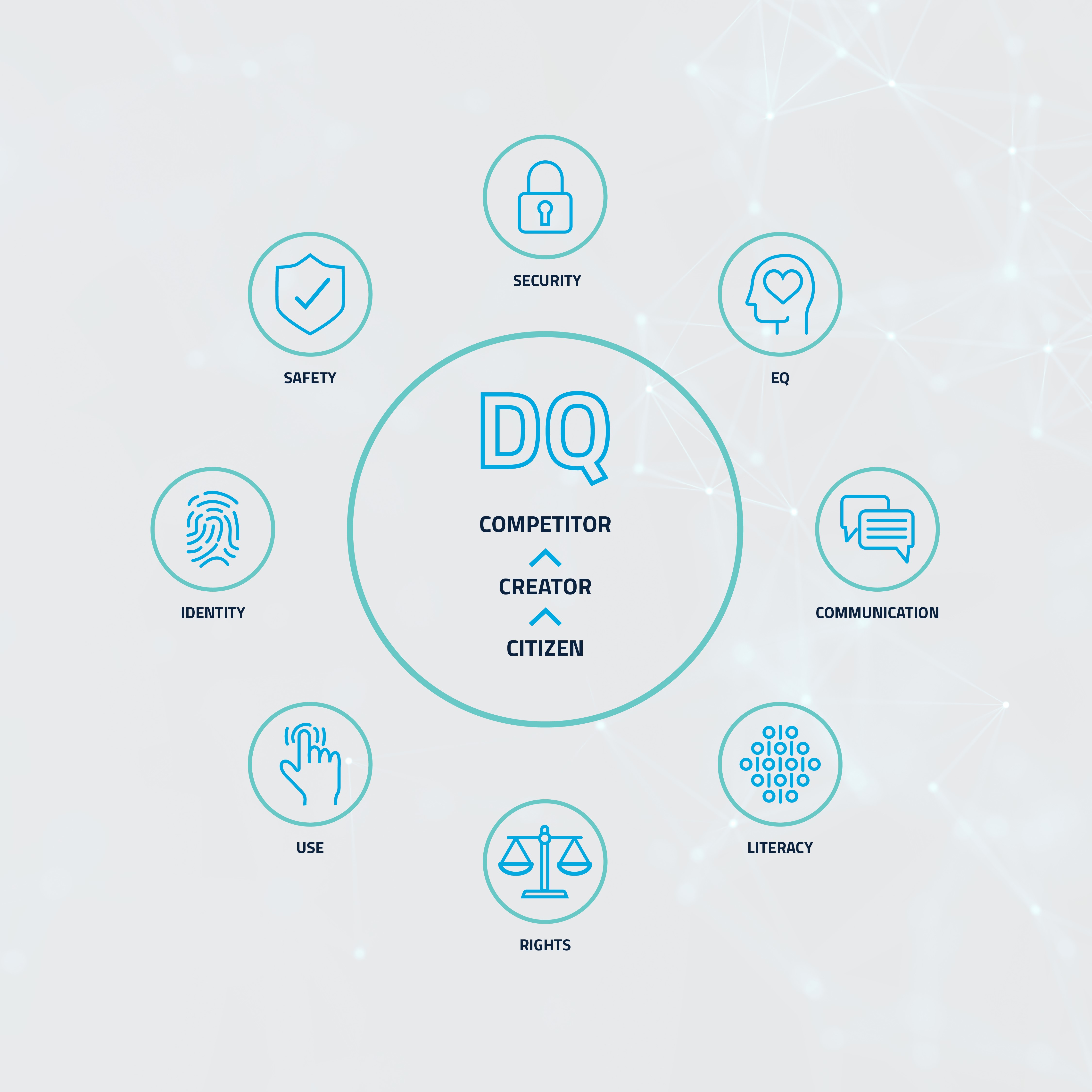DQ 101: The Basics

It’s our job to help people live, learn, and thrive in a digital society. But what does “digital” mean?
The COVID-19 pandemic compelled millions of people to do more online and our world is becoming increasingly digital. Technology is the driving force of change across society and the economy; no industry and no person will be unaffected.
While this era of “digital transformation” can look like a technological story, it’s actually a deeply human story.
At SAIT, we’re committed to creating a future where everyone prospers in this digital society. This means equipping every person — across generations, sectors, and industries — with the human and technical skills they need to create, lead, and thrive.
Why?
- Digital skills need to be updated constantly to enable individuals to participate meaningfully in modern life. We’ve reached a point where learning must be totally entwined into our day-to-day lives to keep up.
- A digital skills gap is detrimental to Alberta’s society and our economy. This leads to individuals being left behind and companies failing to adopt and leverage technologies that drive economic growth.
- As Alberta grows and attracts tech-focused employers, we need to develop the talent supply to meet the demand.
- As educational institutions, seeding digital skills — across all disciplines — needs to happen now.
While everyone recognizes the critical need for digital skills, it's even more critical that we define what we mean when we say digital and map those skills. After all, digital is less of an outcome and more of a “way of being.”
So, how do we measure and evolve digital skills in an era where digital technology is accelerating at an ever-quickening pace?
We must first start speaking the same language and work from the same ”songbook”. As such, SAIT’s School for Advanced Digital Technology (SADT) has adopted Digital Intelligence (DQ).
What is Digital Intelligence (DQ)?
Thriving in a digital world is about humans and their relationships with the systems around them. It means being empowered with the knowledge, skills, attitudes and values that are aligned with a digital world.
DQ is an IEEE standard for digital literacy, skills, and readiness created by the DQ Institute to establish an internationally-recognized framework for instructors and students as a foundation for defining and measuring maturity of digital competencies. Beyond Intelligence Quotient (IQ) and Emotional Intelligence (EQ), DQ embodies critical skills needed to thrive in the digital age.

Defining Your DQ Maturity Level:
DQ maturity levels range from Citizen to Creator to Competitor — highlighting a transition from participation to creation to innovation and leadership, respectively.
| Citizen This level focuses on how people use digital technology and media in everyday life. From grocery shopping, to Zoom calls, or collaborating with peers in an online forum, there’s a basic level of knowledge needed to simply participate in society and use technologies in a responsible, safe and ethical way. The landscape is rapidly changing and people must constantly learn in order to participate. |
||
| Creator As Citizens leverage digital skills and knowledge to solve problems, we move to the Creator level of maturity. As people use digital skills to turn ideas into solution, they move beyond simply consuming technology and become Creator. By focusing on the way digital technology connects the world, Creators leverage their knowledge to create ideas, products, services and content to make a tangible difference. |
||
| Competitor This is the highest maturity level. As Creators evolve to focus on global innovation and create new opportunities in the digital economy, they become Competitors. This is when digital transformation creates widespread, positive impact in communities and economies around the world. Competitors leverage digital skills to solve some of the biggest issues facing humanity — from climate change to poverty. |
Each level requires lifelong learning because technology continues to transform the way human beings live, work, connect, learn and develop — at a remarkable pace. The half-life of digital skills is becoming shorter and shorter as we’re inundated with innovative technologies every day.
Therefore, DQ is not an end game, but a lifelong journey in maintaining a healthy DQ to engage in a digital society in a meaningful way. When people dip below the Citizen level, they risk becoming an invisible, digitally disenfranchised part of society. We cannot overlook how detrimental that can be to both the well-being of individuals — and society.
What Are the Competencies?
People experience eight critical areas of digital life — Identity, Use, Safety, Security, Emotional Intelligence, Communication, Literacy and Rights — which correlate to skills and competencies. At the intersection of maturities and focus areas, we find 24 competencies that detail the requisite knowledge, skills, attitudes, and values needed. This series will dive into each of the eight digital areas and the corresponding competencies.
For example, let’s take the area of Digital Identity to show how it is exemplified across each maturity level as outlined by the DQ Institute:
|
Citizen = The ability to build and manage a healthy identity as a digital citizen with integrity. Creator = The ability to identify and develop oneself as a co-creator of the digital ecosystem. Individuals understand how to keep up with advancements in information and communications technologies as well as integrate digital technologies into their everyday lives in a way that is complementary and productive rather than disruptive. In turn, they learn to be open to experimenting with new technology and when to reject them. Competitor = The ability to identify and develop oneself as a competent changemaker in the digital economy. Individuals understand general and emerging trends within digital environments, how the use of technology shapes and is shaped by globalization and interdependent networks, and the need to recognize emerging problems that technology can create and address. They identify and evaluate innovative business or social impact opportunities provided by new technology advances.
|
You can see how these build upon one another.
Having a standard model provides everyone with a shared reference and way to articulate what it means, as a person, to be Digital. This includes parents, students, educators, employers and technologists. It is critical that we all speak the same language as we learn, plan, execute and measure.
In this series we will examine each of the eight areas of DQ and corresponding competencies at varying maturity levels. As you read, consider your own DQ level as well as the skills of your friends, colleagues, family and students around you.
Have questions?
Skills for the Future
We prepare students for successful careers and lives.
SAIT'S
2020-2025
Strategic plan